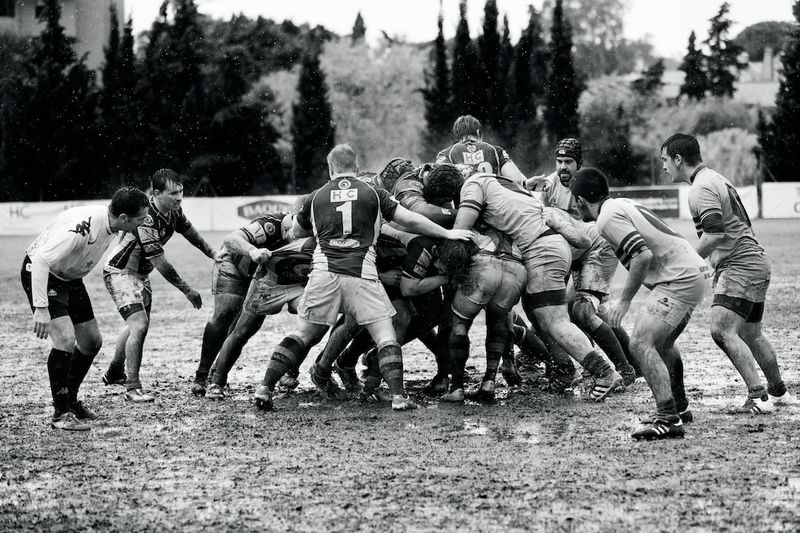Exploring Identity and Social Commentary through “They Cloned Tyrone”
The Personal Back Story Driving ‘They Cloned Tyrone’
Juel Taylor, a seasoned Hollywood writer-turned-director, has recently debuted his first feature film, “They Cloned Tyrone.” Known for his work on successful films like “Creed II” and “Space Jam: A New Legacy,” Taylor’s latest venture is a unique blend of comedy, sci-fi, conspiracy, and thriller genres. The film stars John Boyega, Jamie Foxx, and Teyonah Parris and is available for streaming on Netflix.
In a recent interview, Taylor opened up about the personal origins of the story and how it gave rise to deeper questions about structural racism, personal autonomy, and the search for meaning. The film revolves around Fontaine, a small-time drug dealer who may or may not be a clone, as he teams up with his least favorite clients to unravel a sinister plot that challenges his beliefs about himself and the world.
Origins of “Tyrone”
The idea for “Tyrone” came to Taylor during a burst of creative inspiration. While working on a project for Macro, the production company behind “Tyrone,” Taylor and his writing partner Tony Rettenmaier pitched and sold the movie in 2018. The original idea was to create a mystery that played with inadequate yet uniquely equipped detectives, but it wasn’t until Taylor discovered the character of Fontaine that the story truly came together.
The character of Fontaine was inspired by a personal experience Taylor had with a friend from college who had faced life-altering circumstances. This encounter made Taylor reflect on blame, responsibility, and circumstances beyond one’s control. With these elements in place, “Tyrone” transformed into an exploration of identity crisis and the struggle to overcome uncontrollable external factors.
Influences
Taylor is someone who thinks in genres, but his creative process often starts with mood and tone. He draws inspiration from various sources, including music, film scores, and his own cultural background. The music of the 80s R&B and funk scenes, as well as Southern rap, heavily influenced the tone of “Tyrone.” Additionally, Taylor cites films like “The Truman Show,” “They Live,” “The Matrix,” and “The Manchurian Candidate” as key influences, along with the style and world-building of movies like “Jackie Brown” and “Napoleon Dynamite.”
Exploring Stereotypes and Social Commentary
In “They Cloned Tyrone,” Taylor incorporates stereotypical ideas of Black culture into the conspiracy plotline, touching on references like fried chicken, grape drink, and perm cream. However, he does so with the intention of subverting and deconstructing these stereotypes, while also exploring the complex relationship between self-perception and how others perceive us.
Taylor acknowledges that these depictions might make some viewers uncomfortable, but he believes that exploring these subjects is crucial for meaningful storytelling. He recognizes the danger of perpetuating negative images, but also emphasizes the importance of portraying diverse experiences and allowing different interpretations of the film. Taylor hopes to challenge preconceived notions and encourage viewers to engage with the characters and themes with an open mind.
Editorial and Advice
“They Cloned Tyrone” is a testament to Juel Taylor’s talent as a storyteller, blending genres and thought-provoking themes with mainstream entertainment. The film’s exploration of identity, racism, and personal autonomy presents an opportunity for important conversations around these topics.
As audiences, it is essential to approach films like “Tyrone” with a critical yet open mind. By engaging with the characters and their journeys, we can challenge our own preconceptions and gain new perspectives. It is crucial to recognize that every viewer’s experience and interpretation may differ, and that diversity of opinions contributes to richer discourse.
As for aspiring filmmakers, Juel Taylor’s journey is a reminder that success can come from unexpected places. His transition from writing to directing demonstrates the importance of perseverance and taking creative risks. Taylor’s determination to explore social commentary through genre films offers inspiration for storytellers who seek to push boundaries and provoke thought.
In conclusion, “They Cloned Tyrone” marks a significant milestone in Juel Taylor’s career and provides a platform for meaningful discussions about identity and social commentary. The film’s blend of genres, personal insights, and thought-provoking themes showcases Taylor’s talent and serves as a reminder of the power of storytelling to challenge and inspire audiences.

<< photo by Gary Butterfield >>
The image is for illustrative purposes only and does not depict the actual situation.
You might want to read !
- “An Australian Perspective: Deconstructing ‘They Cloned Tyrone’ – A Thoughtful Review”
- Why Christopher Nolan Thinks Robert Downey Jr. Is an Exceptional Iron Man
Title: “The Brilliance of Robert Downey Jr. in ‘Iron Man’: Christopher Nolan’s Praise”
- “Is Barbie to Blame? The Curious Demise of Indie Directors in the Film Industry”
- How Steven Spielberg’s ‘Jurassic Park’ Revolutionized Filmmaking in Australia and Beyond?
- “Herbert Blitzes the Course: Australian Golfer Takes Early Lead in Thrilling British Open 2023”
- “Breaking Barriers: Asian Tour Champion Conquers British Open’s 18th Hole Greenside Drama”
- Did Robert Oppenheimer deliberately poison his professor’s apple?
The Enigma Unveiled: The Dark Truth Behind Robert Oppenheimer’s Poisoned Apple
- What if Christopher Nolan helmed The Avengers? Robert Downey …
“Waking the Superhero Genre: The Hypothetical Marvel-DC Crossover Directed by Christopher Nolan” - “Good luck finding a ticket for ‘Oppenheimer’ in IMAX 70mm”
- Jazz Legend Tony Bennett’s Melodic Journey Comes to an End at 96
- “Aussie Alternative: Independent Films Take Center Stage in Melbourne”
- Screens down under light up with the Transforming crew: A review of Transformers: Rise of the Beasts (2023) in Australia




